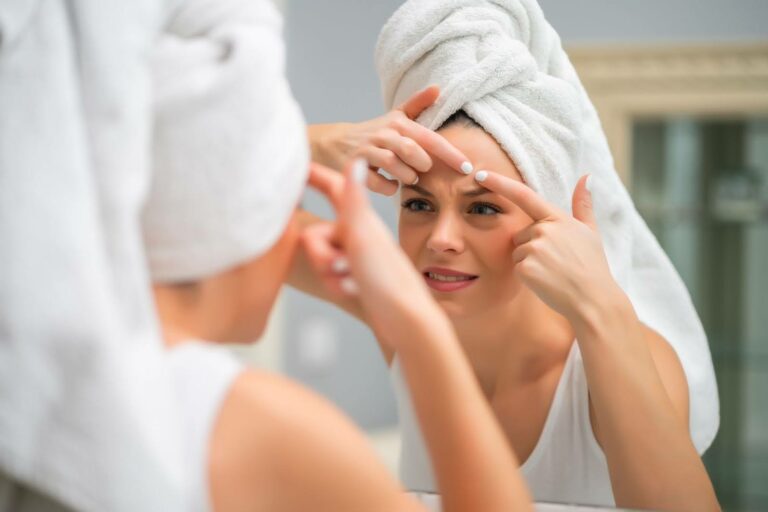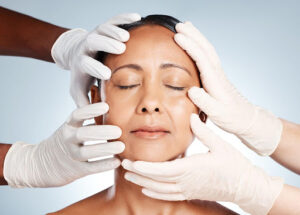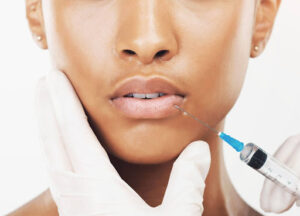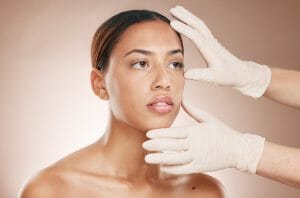Rhinoplasty, commonly referred to as a nose job, is a cosmetic surgical procedure aimed at altering the shape and structure of the nose. This popular cosmetic surgery addresses both aesthetic concerns and functional issues related to the nasal passages. While rhinoplasty can lead to significant improvements in one’s appearance and breathing, patients may experience unexpected challenges during the recovery process such as the development of pimples on or around the treated area. In this comprehensive guide, we explore the various aspects of rhinoplasty, delve into the possibility of getting pimples post-surgery, and provide valuable insights on managing and preventing this condition.
What is Rhinoplasty?
Rhinoplasty is a surgical procedure designed to reshape and enhance the nose’s appearance. It can involve altering the size, shape, or proportions of the nose, correcting structural issues that may impede proper breathing, and addressing deformities resulting from injury or congenital conditions. This reconstructive surgery can be broadly categorized into different types, including primary rhinoplasty, revision rhinoplasty, ultrasonic rhinoplasty, and ethnic rhinoplasty.
Consult with a double-board certified rhinoplasty surgeon
Can You Get Pimples After Rhinoplasty?
Getting pimples after rhinoplasty is a concern for some patients. While rhinoplasty primarily focuses on altering the nasal structures, the surrounding skin may still be susceptible to common skin issues, including pimples. Several factors contribute to the possibility of developing pimples on nasal skin after nose surgery:
- Oily Skin: Individuals with naturally oily skin may be more prone to developing pimples. The increased oil production can lead to clogged pores, creating an environment conducive to acne formation.
- History of Acne: If you have a history of acne condition in your family, there is a higher chance that you could develop pimples on your nose skin after your cosmetic procedure.
- Post-operative Care: The post-operative care routine plays a crucial role in preventing pimples after rhinoplasty. Failure to follow the recommended care instructions, such as keeping the nasal area clean and avoiding certain skincare products, may contribute to skin issues.
- Contact with External Factors: Contact with certain substances, such as makeup, skincare products, or even touching the nose with unclean hands, can introduce bacteria and irritants that may trigger pimples.
- Healing Process: The initial stages of the healing process involve the body’s natural response to trauma, which can include increased blood flow to the area. This heightened blood circulation may contribute to temporary redness or small bumps.
- Stress and Anxiety: High levels of stress and anxiety can impact the skin’s condition. Stress may lead to hormonal changes that can influence oil production and contribute to the development of pimples.
How Long Do Pimples Last After Rhinoplasty?
Pimples that develop after rhinoplasty are usually a temporary condition. In most cases, patients may notice small bumps, redness, or pimple-like formations during the initial weeks after surgery. These symptoms are part of the normal healing process and often subside as the recovery progresses.
The exact duration of pimple-like bumps can vary from person to person. Factors such as skin type, post-operative care adherence, and individual healing responses all contribute to the timeline of resolution. In general, patients can expect post-rhinoplasty pimples to diminish within the first few weeks after the procedure.
Finding the perfect nose for your face shape
10 Tips to Limit Pimples After Rhinoplasty Surgery
While the presence of pimples after rhinoplasty is generally temporary, there are proactive measures patients can take to mitigate the risk and promote healthy skin during the recovery period:
- Follow Post-operative Care Guidelines: Adhering to the post-operative care and recovery advice instructions provided by the head and neck surgeon practicing in facial plastic surgery is crucial. This includes keeping the nasal area clean, avoiding certain skincare products, and refraining from touching or picking at the nose.
- Gentle Cleansing: Use a mild, fragrance-free cleanser to clean the facial skin, including the treated nasal area. Avoid harsh or abrasive cleansers that may irritate the skin, instead opt for products such as micellar water applied with cotton pads.
- Moisturize: Keep the skin around the nose adequately moisturized. You should use a fragrance-free moisturizer recommended by the surgeon to prevent pore blockage.
- Avoid Makeup: Refrain from applying makeup on or around the nose during the initial weeks of recovery. Makeup can introduce bacteria and other irritants, potentially leading to pimple formation.
- Stay Hydrated: Drinking plenty of water is essential for overall skin health. Proper hydration helps maintain skin elasticity and promotes the body’s natural healing processes.
- Avoid Contact Sports: To ensure proper care of nasal bones and skin after surgery, you should avoid all contact sports as they can aggravate the area, creating a whole host of additional problems.
- Limit Sun Exposure: Protect the treated area from excessive sun exposure. Prolonged sun exposure can irritate the skin and potentially delay the healing process.
- Avoid Touching the Nose: Minimize contact with the nose, and refrain from picking at bumps or pimples. Clean the area gently with clean fingertips when necessary.
- Use Saline Sprays: If recommended by the surgeon, use saline sprays to keep the nasal passages moist and facilitate healing. This can prevent dryness that may contribute to skin issues.
- Take Medication: It is unlikely that you will experience severe acne post-surgery but if you are one of the few rhinoplasty patients who do, you can consult a healthcare professional regarding possible medications to keep pimples at bay.
Consult a Cosmetic Surgeon
At Clinique Face MD, under the expert leadership of double board-certified Dr. Sami Moubayed, we offer a comprehensive range of cutting-edge cosmetic procedures tailored to meet the unique needs and desires of each patient. Renowned for our excellence in rhinoplasty, we provide a spectrum of specialized nasal procedures, including:
- Rhinoplasty
- Revision rhinoplasty
- Ultrasonic rhinoplasty
- Ethnic rhinoplasty
- Middle Eastern rhinoplasty
- Alar base reduction
- Non-surgical nose job
- Male rhinoplasty
With a commitment to innovation and personalized care, we stand out as a trusted destination for individuals seeking transformative and expertly executed cosmetic procedures.
Frequently Asked Questions
What can I expect in the days after surgery?
After undergoing rhinoplasty, the initial 24 hours are crucial for recovery. During this period, patients may experience mild discomfort, swelling, and possibly some bruising. It’s essential to follow post-operative care instructions meticulously, including keeping the head elevated, using cold compresses, and taking prescribed medications. The first day after surgery sets the foundation for a smooth recovery, and patients should expect to rest and limit physical activity.
What are the different types of rhinoplasties, including Asian rhinoplasty and liquid rhinoplasty?
Rhinoplasty is a versatile procedure, and various types cater to individual needs. Asian rhinoplasty addresses specific aesthetic goals common in ethnic populations, such as augmenting the bridge and refining the tip. Liquid rhinoplasty, a non-surgical option, involves using injectable fillers to reshape and enhance the nose without surgery. Understanding these variations helps patients make informed decisions based on their unique preferences and anatomical characteristics.





